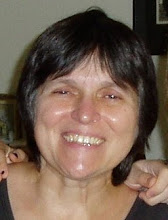
Eat food. Mostly plants.
Wish I had said that, but Michael Pollan, who was on Oprah today, got there first. I'm amazed at how rapidly and thoroughly food production has changed. I live near the line between urban and rural. When I was a local news reporter, it always amazed me to hear about city kids coming to a local dairy farm to find out where milk came from. They didn't know. The store, right? I lived through this once already, going back to the garden in the '60s, before highly processed food was king and when Wonder Bread was just that -- a labor-saving wonder. Is cheap food all that cheap if it's making us fat and chronically ill? I'm up for a change, starting in my own back yard. The next revolution will be in the garden.


